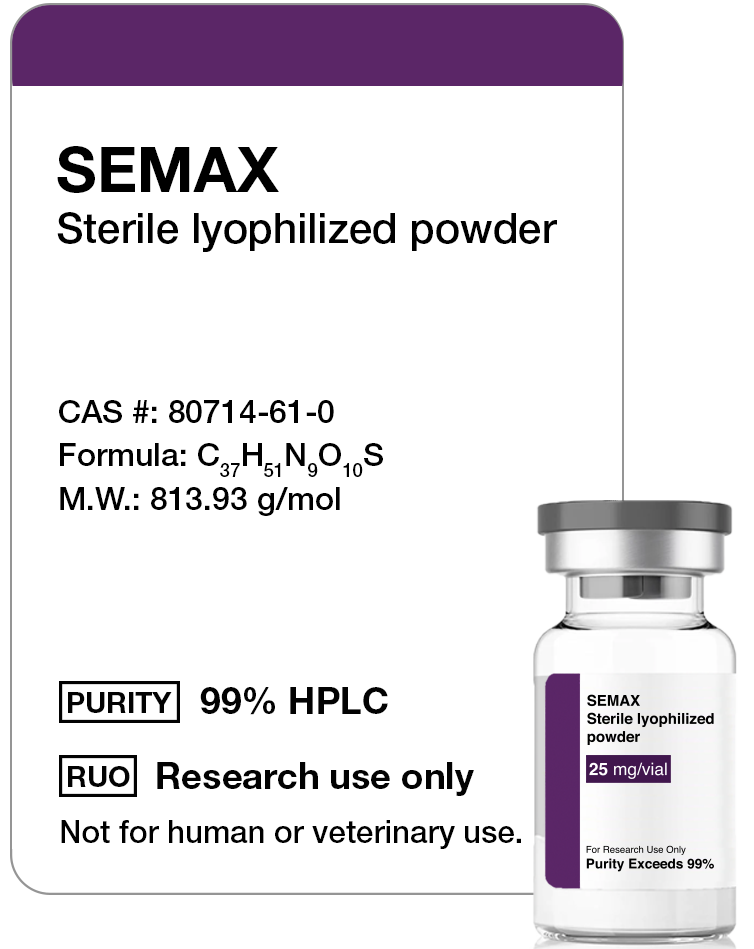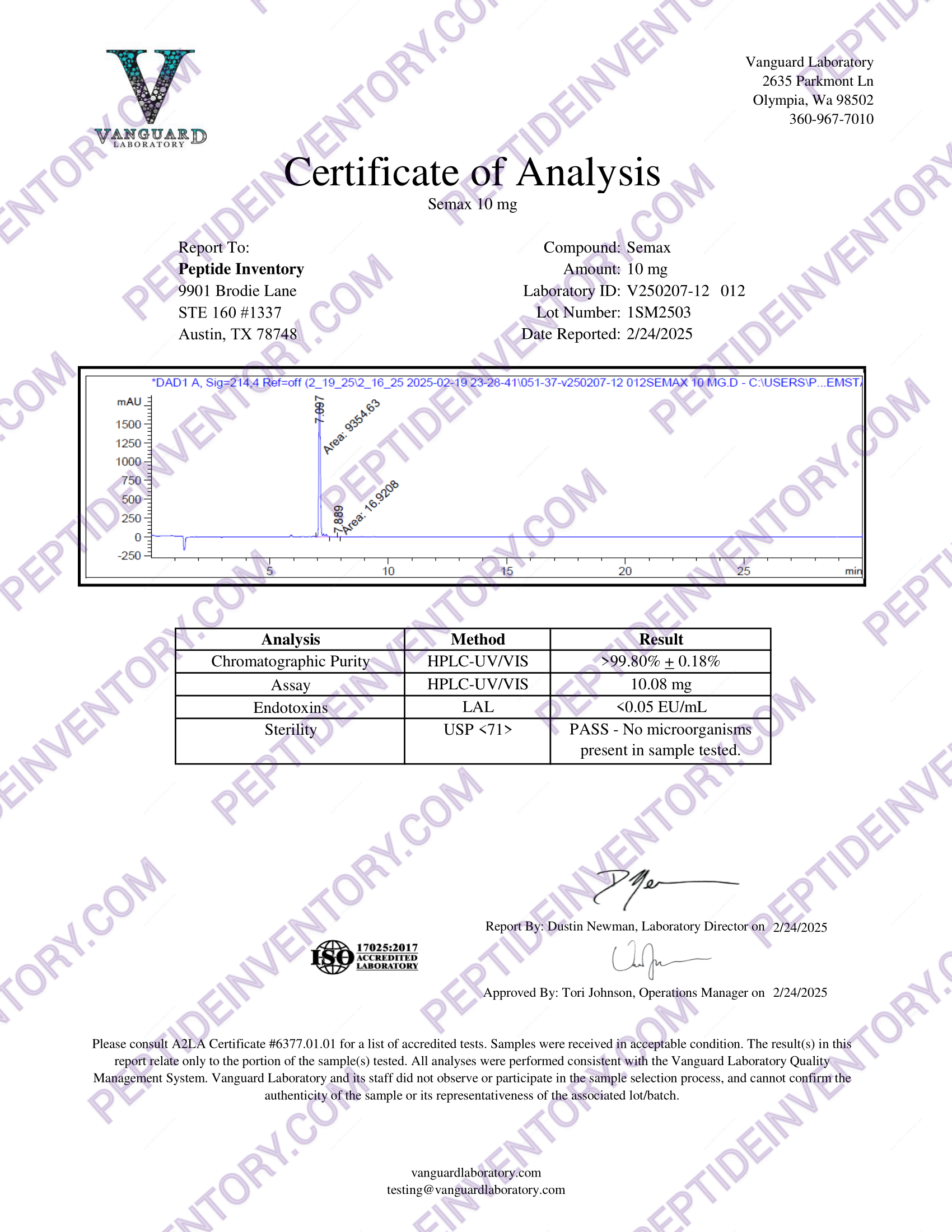Semax
Price range: $30.00 through $53.00
Semax is a medication primarily used in Russia and Eastern Europe to treat a variety of conditions, including brain trauma. It is especially noted for its claimed nootropic, neuroprotective, and neurorestorative effects. Semax is a synthetic peptide, derived from a fragment of adrenocorticotropic hormone (ACTH), and it may interact with certain melanocortin receptors or inhibit enkephalinase enzymes, although its exact mechanism of action is not fully understood. The peptide’s effects are attributed to its potential impact on cognitive function, brain protection, and overall neurological recovery.
Description
Semax is a synthetic peptide derived from a fragment of adrenocorticotropic hormone (ACTH), initially developed in Russia for its neuroprotective and cognitive-enhancing properties. It is designed to support brain function and provide protection against neurological damage. (1)
Semax is thought to influence brain function by affecting levels of neurotrophic factors and modulating neurotransmitter systems, including dopamine and serotonin. (2) Additionally, it may enhance brain-derived neurotrophic factor (BDNF) levels, which are vital for neuronal survival and plasticity. (3)
Research into Semax has indicated potential benefits in neuroprotection and cognitive enhancement, particularly for conditions such as stroke, traumatic brain injury, and neurodegenerative diseases. (4,5) It is used in some countries to treat cognitive impairments and may also have anxiolytic (anxiety-reducing) and antidepressant-like effects, potentially influencing mood and stress responses. (6,7)
(1) Voronina, T. A. “Cognitive impairment and nootropic drugs: Mechanism of action and spectrum of effects.” Neurochemical Journal 17.2 (2023): 180-188.
(2) Eremin, K. O., Kudrin, V. S., Grivennikov, I. A., Miasoedov, N. F., & Rayevsky, K. S. (2004, January). Effects of Semax on dopaminergic and serotoninergic systems of the brain. In Doklady Biological Sciences (Vol. 394, pp. 1-3). Kluwer Academic Publishers-Plenum Publishers.
(3) Shadrina, M., Kolomin, T., Agapova, T., Agniullin, Y., Shram, S., Slominsky, P., … & Myasoedov, N. (2010). Comparison of the temporary dynamics of NGF and BDNF gene expression in rat hippocampus, frontal cortex, and retina under Semax action. Journal of molecular neuroscience, 41, 30-35.
(4) Dolotov, O. V., Karpenko, E. A., Inozemtseva, L. S., Seredenina, T. S., Levitskaya, N. G., Rozyczka, J., … & Engele, J. (2006). Semax, an analog of ACTH (4–10) with cognitive effects, regulates BDNF and trkB expression in the rat hippocampus. Brain research, 1117(1), 54-60.
(5) Ivanikov, I. O., Brekhova, M. E., Samonina, G. E., Myasoedov, N. F., & Ashmarin, I. P. (2002). Therapy of peptic ulcer with semax peptide. Bulletin of Experimental Biology and Medicine, 134(1), 73-74.
(6) Vilenskiĭ, D. A., Levitskaia, N. G., Andreeva, L. A., LIu, A., Kamenskiĭ, A. A., & Miasoedov, N. F. (2007). Effects of chronic Semax administration on exploratory activity and emotional reaction in white rats. Rossiiskii Fiziologicheskii Zhurnal Imeni IM Sechenova, 93(6), 661-669.
(7) Yatsenko, K. A., Glazova, N. Y., Inozemtseva, L. S., Andreeva, L. A., Kamensky, A. A., Grivennikov, I. A., … & Myasoedov, N. F. (2013, November). Heptapeptide semax attenuates the effects of chronic unpredictable stress in rats. In Doklady Biological Sciences (Vol. 453, No. 1, p. 353). Springer Nature BV.
Additional information
| Size | 10mg, 25mg |
|---|
Only logged in customers who have purchased this product may leave a review.


Reviews
There are no reviews yet.